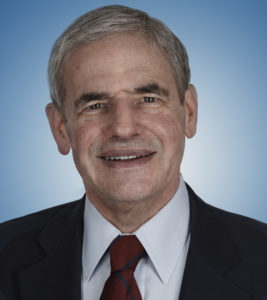The Wall Street Journal reports today, in “Obama: U.S. Needs More Highly Educated Workers”:
‘If we want to win the global competition for new jobs and industries, we’ve got to win the global competition to educate our people,’ Mr. Obama said in his weekly radio address to the nation. He added, ‘That’s how we’ll ensure that the next Intel, the next Google, or the next Microsoft is created in America, and hires American workers.’
The president’s budget request, released Monday, would boost funding for the Department of Education to $77 billion from the $64 billion it received in the last fiscal year. Some of the money would be used to boost the number of science, engineering and math teachers.
Mr. Obama is wrong in his premises and wrong in his prescription. We will start by considering his premises.
First, there is no “we” that wants “to win the global competition for new jobs and industries.” The U.S. is a large country populated by people with varied interests and skills. Each individual has his own economic interests, and competes individually. Further, the interests of the U.S. government often clash with those of the people.
Second, the idea that the U.S. government can help “educate our people” is laughable. The federal government should get entirely out of education.
Third, having as a goal the establishment of high technology companies, or any other particular industry, is wrong. Only the free market, with free trade, can determine the comparative advantage of people and companies in the U.S. Since Mr. Obama continues to suffer from a belief in mercantilism, as reflected by his full speech, he appears unlikely to promote free trade.
Fourth, the desirability of using taxpayer money used to increase the number of teachers in specific fields is fallacious. Only a free market in education could determine the need for teachers of any subjects.
Fifth, consider Mr. Obama’s statement of his desire to “educate our people … to ensure that the next Intel, the next Google, or the next Microsoft is created in America, and hires American workers.” Do these examples provide support for his vision? Intel was co-founded by Andrew S. Grove, an immigrant from Hungary. Google was co-founded by Sergey Brin, an immigrant from Russia. Microsoft was founded by Bill Gates and Paul Allen, both college dropouts.
One lesson from these companies, and many other high technology firms, is that the U.S. should liberalize immigration. Instead, Mr. Obama has restricted the ability of well-educated people from foreign nations to work in the U.S. by signing legislation last year that increased fees for H1-B (skilled worker) and L-1 (employee transfer) visas for certain employers. In addition, in 2009, Mr. Obama’s “stimulus plan” included restrictions on hiring through H1-B visas for firms that received TARP (Troubled Asset Relief Program) funds.
The U.S. caps H1-B visas at a mere 65,000. This limit, like most of the other restrictions on immigration, is protectionist and harms the economy, as regularly explained by Daniel Griswold and his colleagues at the Cato Institute’s Center for Trade Policy Studies. Immigrants, whether they found companies or work as employees, are a resource.
The second lesson from the examples is that many people, including the co-founders of Microsoft, succeed by taking independent paths. Government’s involvement in education, credentialing, and occupational licensing creates barriers to this success.
Mr. Obama’s underlying false premise, though, is the virtue of central planning. Central planning, whether of education, industry, or labor, always fails. The government lacks the wisdom of the market, and favors itself and special interests rather than the public. Its planning just interferes with the market, and always causes economic harm.
Mr. Obama has helped prolonged the recession with other forms of central planning, most notably that represented by health care “reform.” His continued prescription for the economy—more central planning—will only make things worse.
References:
Banerjee, Devin, “Visa Fees High on India-U.S. Agenda,” Wall Street Journal, IndiaRealTime, August 24, 2010, http://blogs.wsj.com/indiarealtime/2010/08/24/visa-fees-high-on-india-us-agenda/.
Beucke, Dan, “H-1B Visas: ‘Buy American’ Comes to TARP,” Bloomberg BusinessWeek, Feb. 2, 2009, http://www.businessweek.com/globalbiz/blog/money_politics/archives/2009/02/h-1b_visas_buy.html.
Cato Institute, Policy Scholars, “Daniel Griswold,” Cato.org, http://www.cato.org/people/daniel-griswold.
Favole, Jared A., “Obama: U.S. Needs More Highly Educated Workers,” Wall Street Journal, Feb. 19, 2011, http://www.wsj.com/articles/SB10001424052748703407304576153872070247138.
Sharm, Amol, et al., “Higher U.S. Visa Fees Would Hit Indian Firms,” Wall Street Journal, August 7, 2010, http://www.wsj.com/articles/SB10001424052748703988304575413011107101860.
Shellenberger, David E., President Obama: Mercantilist,” December 5, 2010, https://www.daveshellenberger.com/president-obama-mercantilist.
White House, “Weekly Address: Winning the Future at Intel,” Feb. 19, 2011, http://www.whitehouse.gov/blog/2011/02/19/weekly-address-winning-future-intel.




